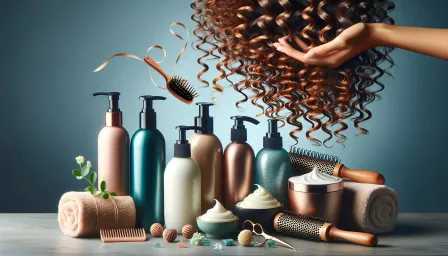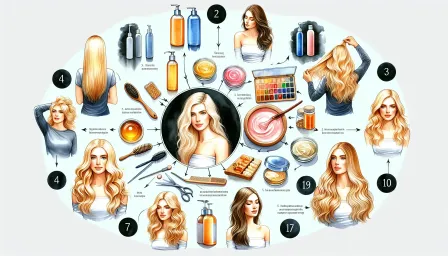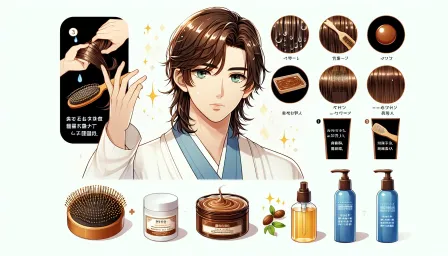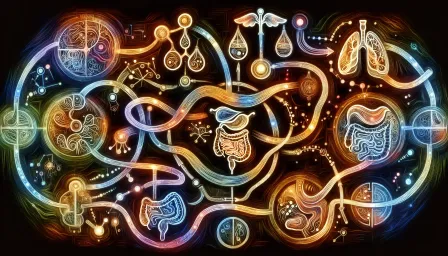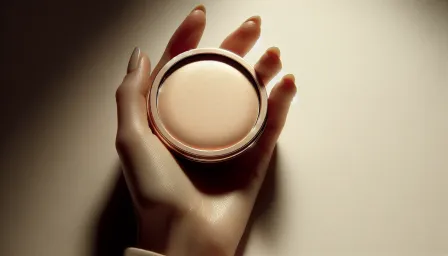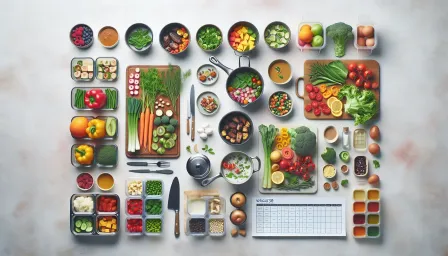Dandruff Diet: Foods to Eat and Avoid for a Flake-Free Scalp

Discover the best dandruff diet: foods to eat and avoid for a flake-free scalp. Learn how nutrition plays a crucial role in combating dandruff effectively.
Dandruff can be an embarrassing and persistent issue that affects millions of people. While there are numerous shampoos and topical treatments available to combat dandruff, one often overlooked solution is diet. Just as nutrition plays a vital role in our overall health, it can significantly influence the health of our scalp and the presence of dandruff. In this article, we will explore the dandruff diet: foods to eat and avoid, providing you with a comprehensive guide to achieving a flake-free scalp through dietary changes.
The Connection Between Diet and Dandruff
Research has shown that diet can impact the production and severity of dandruff. Certain nutritional deficiencies and unhealthy eating habits may exacerbate the condition. Understanding how different foods interact with your body can help you make informed choices that support a healthy scalp.
Importance of a Balanced Diet
A balanced diet is essential for maintaining the body’s overall health, including the scalp. Nutrient-rich foods provide the necessary vitamins, minerals, and antioxidants that promote healthy skin and reduce inflammation. On the other hand, a diet high in processed foods, unhealthy fats, and sugars can lead to nutritional deficiencies and contribute to scalp issues.
Foods to Eat for a Healthier Scalp
Incorporating certain foods into your diet can help nourish your scalp and reduce dandruff. Here are some of the best options to consider:
1. Omega-3 Fatty Acids
Foods rich in omega-3 fatty acids, such as salmon, flaxseeds, and walnuts, help reduce inflammation and provide essential nutrients that support scalp health. Omega-3 fatty acids also help keep the scalp moisturized, which can prevent dryness and flaking.
2. Probiotic-Rich Foods
Probiotics, found in foods like yogurt, kefir, and sauerkraut, promote a healthy gut microbiome. A balanced gut microbiome can improve nutrient absorption and reduce inflammation, which may help alleviate dandruff symptoms.
3. Vitamin D
Vitamin D is crucial for skin health and can be obtained from sunlight as well as foods such as fatty fish, fortified dairy products, and eggs. Adequate levels of vitamin D can help reduce the severity of dandruff.
4. Biotin
Biotin, also known as vitamin B7, is important for hair and scalp health. Foods rich in biotin include eggs, almonds, and sweet potatoes. Ensuring sufficient biotin intake can strengthen the scalp and reduce flakiness.
5. Zinc-Rich Foods
Zinc plays a vital role in scalp health and the production of new skin cells. Foods high in zinc include oysters, beef, pumpkin seeds, and chickpeas. Adequate zinc levels can help regulate oil production and reduce dandruff.
Foods to Avoid to Prevent Dandruff
Just as some foods can benefit your scalp, others can exacerbate dandruff. Here are some foods to avoid:
1. Sugary Foods
Sugar can contribute to dandruff by promoting the growth of yeast on the scalp. Reducing your intake of sugary foods and beverages can help maintain a healthier scalp environment.
2. High-Glycemic Foods
Foods with a high glycemic index, such as white bread, pasta, and pastries, can spike blood sugar levels and lead to inflammation. Choosing whole grains over refined grains can help mitigate this effect.
3. Dairy Products
While dairy is a good source of nutrients, it can sometimes trigger an overproduction of oil on the scalp, leading to dandruff. If you notice a correlation between dairy consumption and dandruff, consider moderating your intake.
4. Fried and Greasy Foods
Greasy foods can contribute to excess oil production on the scalp, making it a breeding ground for dandruff. Limiting fried and fatty foods can help maintain a balanced scalp environment.
Additional Tips for a Flake-Free Scalp
Along with dietary changes, there are other lifestyle habits and practices that can support a dandruff-free scalp:
Stay Hydrated
Drinking plenty of water helps keep the scalp hydrated and can prevent dryness and flakiness. Aim for at least eight glasses of water a day to maintain optimal hydration levels.
Manage Stress
Stress can contribute to dandruff by disrupting hormone levels and triggering inflammation. Incorporate stress-management techniques such as meditation, yoga, or regular exercise to keep stress under control.
Maintain a Consistent Haircare Routine
Using a gentle shampoo and conditioner suited for your hair type can help maintain scalp health. Avoid over-washing, as it can strip the scalp of natural oils, leading to dryness.
Conclusion
While dandruff can be a frustrating condition, making informed dietary choices can play a significant role in managing it. By focusing on a balanced diet rich in omega-3 fatty acids, probiotics, vitamin D, biotin, and zinc, you can support a healthier scalp environment. Additionally, avoiding sugary, high-glycemic, dairy, and greasy foods can prevent exacerbating dandruff symptoms. Combine these dietary changes with good hydration, stress management, and a consistent haircare routine, and you will be well on your way to achieving a flake-free scalp.
Remember, every individual is unique, and it may take some time and experimentation to discover what works best for your scalp. However, by adopting these nutritional strategies, you are making a proactive step towards better scalp health and overall well-being.





